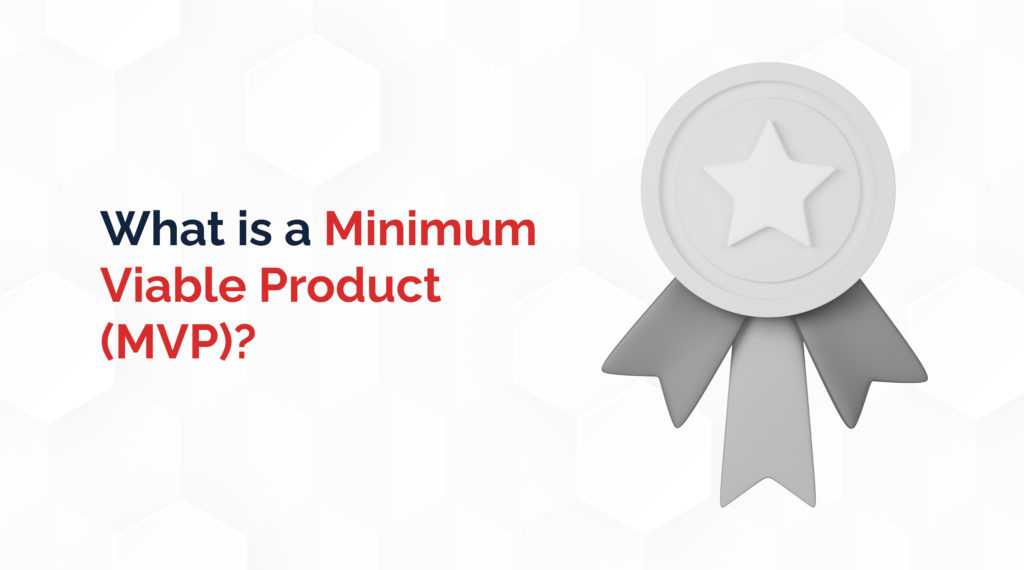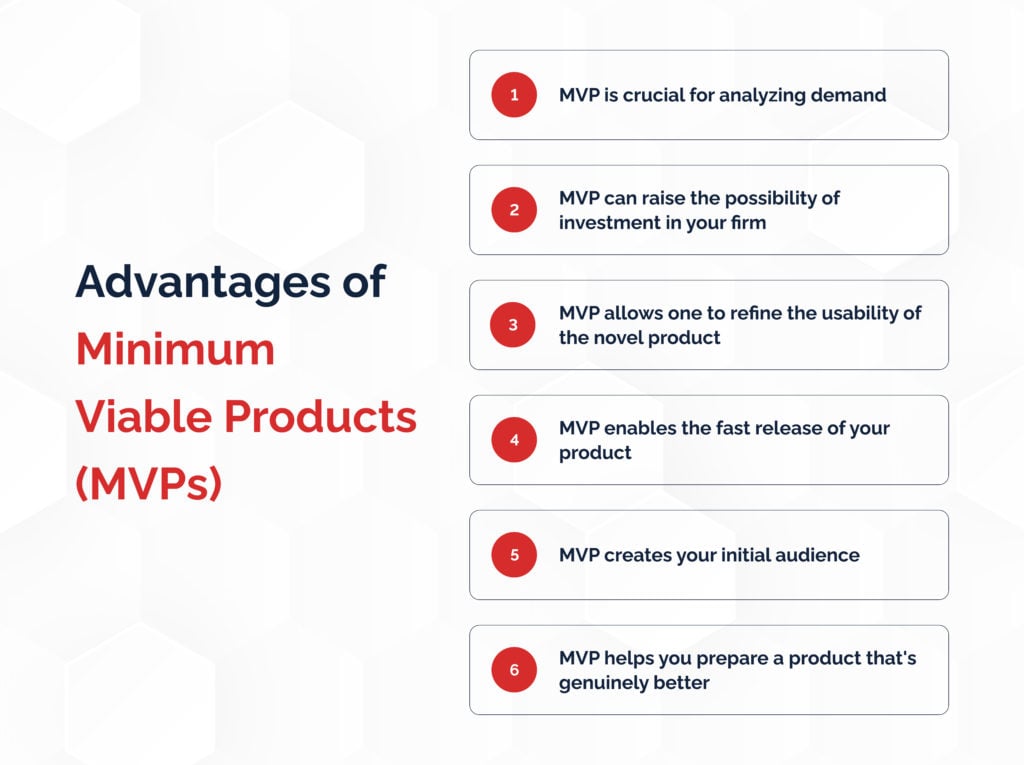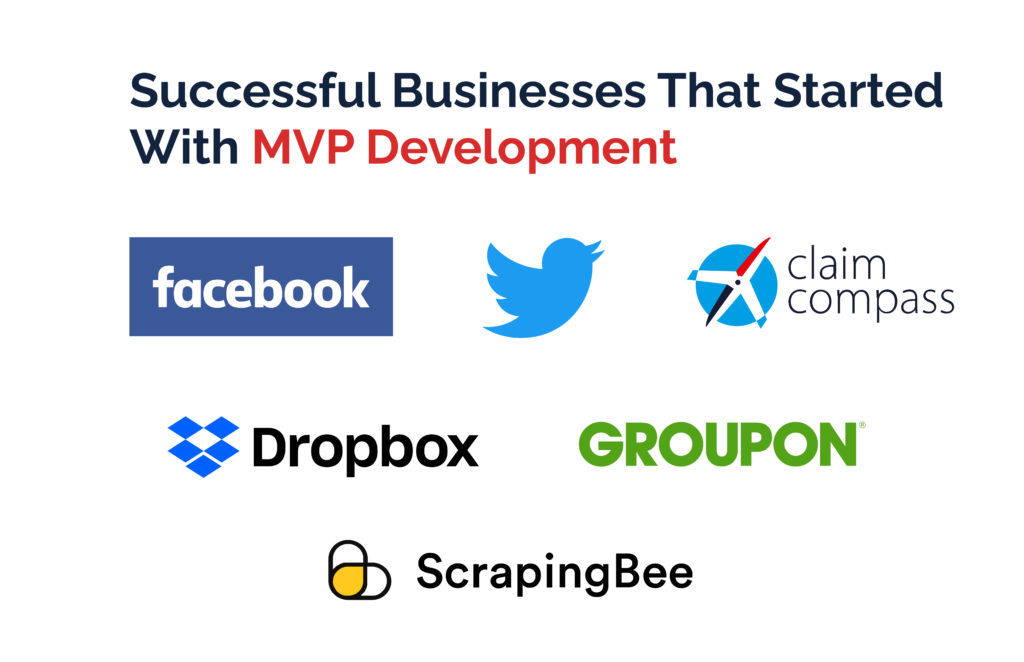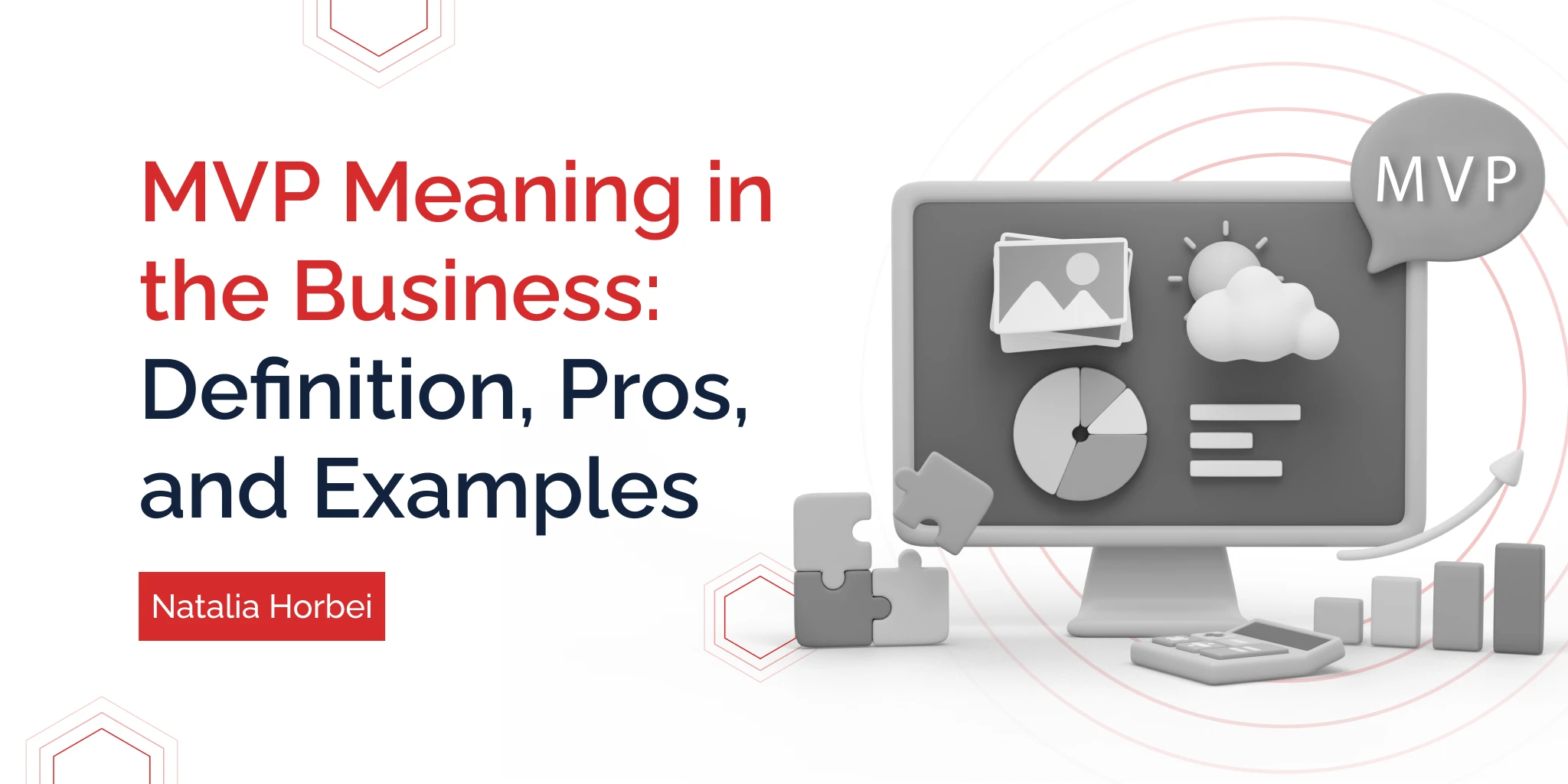The ability to create products in a way that is cost-effective is among the main goals for any developer in the modern world.
The meaning of MVP in business is to assist the experts with achieving this goal through a unique approach to product creation. In this article, we’ll look at the nature of the term in question and, more importantly, describe the key reasons to adopt the approach among modern businesses. After reading this material, you will learn about the relevant business model behind the concept of MVP and be able to apply some aspects of it to real-life products. We believe the method can greatly help your business in all its activities.
What is a Minimum Viable Product (MVP)?

What is MVP in business? It stands for the concept of the so-called minimum viable product. One can define it as a version of the program that achieves its main effects on the users with the lowest amount of effort. In practice, this means that MVP is a version of a product or service that provides the users with the key selling features. Naturally, you may want to have additional characteristics for your product in some other scenarios. However, MVP concentrates on the ‘killer’ features that are the most likely to affect customer satisfaction.
MVP Meaning in Business
The impact of MVP in this sector is tremendous today. What is MVP in business? It’s an opportunity to, more or less, minimize the risks during the creation of some new product. When some startups and even big companies create software, they always have the risk of it not being popular among users. Many ideas look great on paper but are of no value to the customers. MVP allows for user feedback. You can test if some concept makes sense and avoid big losses simultaneously. Considering the large impact of political and environmental events on the economy today, an MVP is crucial for all IT companies and even some manufacturing businesses.
Concept of MVP in business
The concept of MVP in business is now a clearly established notion. It initially became popular among IT companies but now the approach can easily apply to some other fields. Product usability doesn’t affect software development alone: many companies in the food sector also benefit from it. Certain dishes may require unique ingredients and their mixtures that can be expensive to acquire. MVP can have a very positive impact in the presented cases. Therefore, while our Viable Product examples will primarily come from the IT business sector, this article can interest all types of entrepreneurs.
The main goals of an MVP
MVP meaning in business is easy to understand once you recognize its motivation. It seeks to minimize the overall development costs a company can expect for a particular product. This information means the main goal of MVP is to reduce risk to the finances of a company when it develops some new business ideas. A focus on the key features can soften the overall level of failure in the worst-case scenario and make the outcome less devastating for all the key parties. If you act in fields with a high level of risk, the approach is the most likely to help.
Advantages of Minimum Viable Products (MVPs)
Let’s look at some of the key reasons to focus on creating the MVP in business. Here are some key features one should consider:

MVP is crucial for analyzing demand
When you create an MVP, you deliver the key features of your projects to the customers. Many people target certain products for one or two main characteristics that make them highly convenient. MVP can show if the main idea of your business is of high value to the potential customers. Then, you can see how many people would be ready to purchase or become everyday users. One may compare the concept to a series of market interviews with customers.
MVP can raise the possibility of investment in your firm
Investors want to see concrete achievements instead of pompous presentations without any products. It’s risky to invest in products that don’t have a real-life representation of their main functions. MVP in business doesn’t only stand for a version of a product that should fit some of the main user pains. It also offers an opportunity to provide proof of concept. When you have an MVP, many people are able to try out what you’re offering and make some major judgments on the product. This can make many people willing to invest: after all, once you have a prototype, it’s easier to turn it into a product.
MVP allows one to refine the usability of the novel product
When we put some ideas on paper, they may seem perfect. “It definitely has to work because the idea is great,” a person may think. Real life shows that the complete product is often a disappointment. It’s either impossible to realize every aspect of one’s fantasies or the idea interests a very small number of people. The best way to overcome this issue is definitely a focus on the MVP concept. You can take some concept ideas and gradually turn them into something that works. Let’s say, you develop a note-taking app. The folder structure that works can appear only after some people actually try what you offer. You get a chance to work with a large amount of feedback through an MVP.
MVP enables the fast release of your product
A very big threat for any company in the modern markets lies in the possibility of being overtaken by competitors. Many topical ideas don’t appear just in one business. Multiple people can make the same invention all across the world. If you don’t release your idea fast, someone else can come up with an alternative or even steal it. With the use of MVP, it’s possible to create an innovative product that would reach the market fast. This can give a vital advantage against potential competitors by allowing you to capture a large group of customers. Real users can then become one of the key ways to promote the business: people don’t care about perfection; they also want to use services that feature many users.
MVP creates your initial audience
When using an MVP, you forge your new audience. The presence of the first customers for a certain product is essential. They can spread the word about the new business and then become the first advocates of using its solutions. This factor is vital for a complex product. When you create something that requires a big investment of time into understanding all the key features, it’s essential to give people an opportunity to adapt. Your first customers can show others the way and prove that a certain concept is truly useful. In short, the framework greatly eases the traditional product to market pathway.
MVP helps you prepare a product that’s genuinely better
The features reviewed above have a tremendous impact. We believe that MVP’s business influence lies in the ability to make a product better. By using a framework of this type, you can remove many errors and miscalculations in the products. In short, the MVP method for building products can save time and make products better.
Common mistakes when creating Minimum Viable Products (MVPs)
Some big MVP-related mistakes are also present. Here are the main things that you may want to avoid:
- Trying to add too many features: some companies strive to create a full product by entering too many features. Not everything that you think of is necessary for a product. Focus on limited functionality that gives people the key reasons to use your solution.
- Adding too little: a minimum viable product doesn’t mean that you should create some low-quality prototype. It has to show the main feature of the actual product. In short, the users must be able to get value out of your offering. If you can’t provide it, your MVP would fail.
Successful Businesses That Started With MVP Development: MVP Examples
At least several businesses managed to achieve major success with MVP development. What does MVP stand for in business? It stands for a path toward success. If you have doubts about the method, let’s look at the key success stories.

Success Legends & MVP
Facebook: How Simplicity Became the Key to Successful MVP
Facebook started with an MVP product. Its creator began with a network for college students called “Thefacebook.” It aimed to assist a very definite audience. Key features that would later define the full product versions appeared there. Mark Zuckerberg, using an MVP, managed to gather an audience and then transition it toward a mainstream product.
Twitter: How MVP Outperformed Expectations
Twitter appeared as an SMS short message communication channel named Twittr in 2006. The unique approach to message delivery helped the program quickly expand among the employees of Odeo, a podcasting platform, resulting in the formation of a full-scale product in 2007. An MVP became a proof of concept that proved many people wanted a service for short messages. The finished product would have been impossible without the MVP.
Dropbox: How an MVP Tested the Business Hypothesis
Dropbox appeared at a time when cloud-related wares weren’t widespread. Its creator, Drew Houston was among the first to suggest the concept in a video. When the company released a simple version of its product online, the first million users came to the business within 10 months. After that, all that Dropbox had to do was gradually expand its capabilities to create a more pleasant user experience
Groupon: How Failure Formed the Ground for Success
Groupon came into being at first as a simple WordPress blog after the failure of its parent product that concentrated on various legal contracts. Yes, one of the most well-known companies in money-saving activities appeared within such a simple environment. Its first product included coupons for a pizza shop in Chicago. Every request was handled by email. The lack of programming allowed its creator Andrew Mason to test the key features without creating an independent solution. Later, once the audience gathered, formalizing the development process was the only necessary thing.
Success Stories & MVP
ScrapingBee: How MVP Prevented Mistakes
ScrapingBee is an API for getting vital information from the web. There was no direct MVP for the product itself. Its preceding failed iteration, PricingBot, however, underwent such a test, highlighting a set of errors. The developers then simply considered all problems to develop a platform that currently makes at least 3000 dollars every month. The entire process of development manifested due to an MVP.
ClaimCompass: How MVP Foresaw Growth
This site offers its users an opportunity to receive compensation for delayed flights. It was initially a manual platform. The product’s creators were processing every request personally at first. Once the demand rose to a great extent, an idea for an automatic platform appeared. This case shows that an MVP can involve no programming at all. Simply show that your digital product can be of interest through manual methods and then scale it through code-centric automation.
No MVP & Failed Startups
What is an MVP in business? it’s a strong path to success. Some companies, regrettably, fail to understand this important factor:
Singulution: How MVP Could Minimize Losses
This product, according to Hunt Burdick, tried to introduce a sales & business management solution for multi-location vendors. The idea failed to take off. The main reason included the absence of user feedback. Burdick created what he thought people wanted without actually consulting them.
Phoenix: How MVP Could Help to Understand the Audience
Phoenix had a rather original idea: it strived to offer people an automatic messaging service that would send post-humous emails to people of importance. This service failed utterly and managed to attract only 45 users. The reason is that young people had no reason to use it and older individuals simply didn’t feature full-scale expertise to use the service. The founder used a lot of personal funds to get a great domain and even a lawyer. An MVP could have helped the individuals understand that the concept would simply fail.
In Conclusion
What does MVP mean in business? We believe that it, above all, offers a high level of safety. Many businesses that don’t use MVPs end up on sites like Failory. They even have a special flag for such cases. In our opinion, the danger of proceeding without MVP is so high that it can be compared to a leap of faith. You’re essentially playing a lottery that can end in the destruction of your business. Our recommendation is simple: do an MVP for every product. If possible, you should even strive to avoid any code. Test the overall nature of the concept and only then scale.
You’re one email away from launching an MVP for your business. Contact us right now and we will start working on your business idea.

























